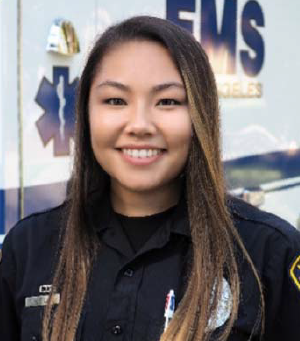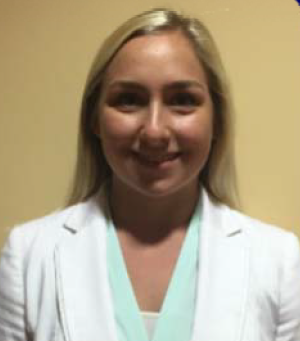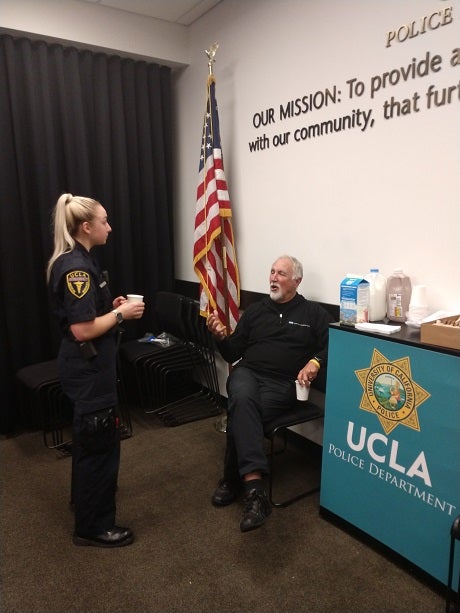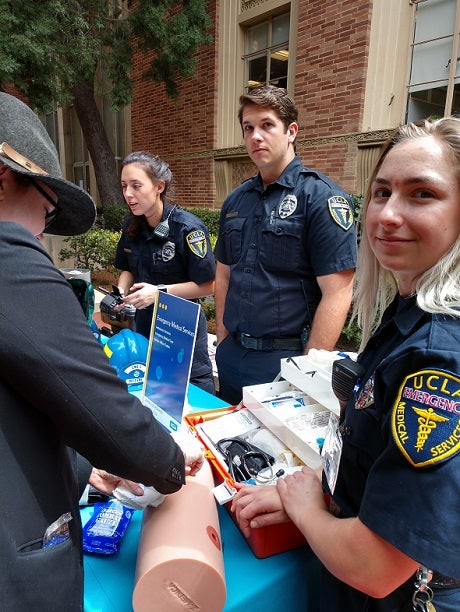In April 2019, EMT Kate Reiss and EMT Montana Ellis answered a few questions about their experience at UCPD Emergency Medical Services. Here are a few excerpts from that conversation.
What inspired you to join the EMS team?
Montana: My dad works at UCLA PD, and he suggested it. It’s competitive, rewarding, and provides experience-it provides an opportunity to get to know medicine.
Kate: My uncle is a paramedic and firefighter. My brother is an EMT too. I’ve been an EMT since my senior year of high school in Virginia, where it’s permitted at age 16. I wanted to continue in college, and I knew UCLA had a program.
What gives you the greatest sense of accomplishment?
Montana: Training the next generation who will then train the next – leaving a legacy. It’s rewarding to train people and watch them grow in skills and abilities, to know that you’ve made an impact.
Kate: I went out on a call to transport a patient to the hospital. The patient’s friend was on scene, stressed and crying. Two days later in the dining hall, I was approached by the girl. “Are you an EMT? You took care of my friend. Thank you.” She gave me a hug and said, “My friend is doing better now. Thanks to your help.” Thank-yous make the day.

Montana Ellis, Training Supervisor
B.S. Psychobiology (June 2019)
After the EMT certification, does EMS require additional training?
Kate: This program’s training is tough. Students have to go above and beyond to prove themselves competent and trustworthy. We must meet the highest professional standards, follow policies, transportation rules, and guidelines for different scenarios. There are 30 medical problems and treatment protocols.

Kate Reiss, Public Relations & Hiring Coordinator
Undergraduate Student
Applied Human Bio & Society
How does EMS complement your academic studies?
Montana: The program emphasizes school first. If you excel in school, that leads to success. We all love what we are doing. It isn’t a task. It is a break from school. We are part of the UCPD family.
How have you grown through your experience at EMS?
Kate: The beginning was intense, but I still got good grades. I had to learn time management, how to prioritize, and how to balance responsibilities and free time. Those skills have helped. College is overwhelming—a big change—and the structure of EMS helped.
Montana: My experience has solidified and deepened my interest in health care. I didn’t realize how much patient interaction there would be – lots of traumatic situations that require on-the-spot thinking and problem-solving. The experience has taught me how to handle chaos, developed my confidence, and built character. I’ve become an adult because of the rigorous training and stressful situations.

Kate with Baxter Larmon, Medical Coordinator
How do you cope with dealing with so many traumatic situations?
Montana: In the moment, you act. You can’t train for the gravity of some situations. You rise to the occasion. On dangerous calls, you stage but wait for PD to arrive. Afterwards, there are formal debriefs; everyone swarms in to make sure you are okay.
Where will your experience with EMS lead you? What’s next?
Montana: I’m training my replacement at EMS. After graduation, I’m headed to Boston for a master’s degree and then med school. I’m leaving the program in a good place.
Kate: I have been inspired by EMS. I want to see and experience the world. I plan to serve in the Peace Corps, a medical internship in a clinic. I want to help people.

EMTs taught staff how to stop the bleed at the Murphy Hall Safety Fair.
